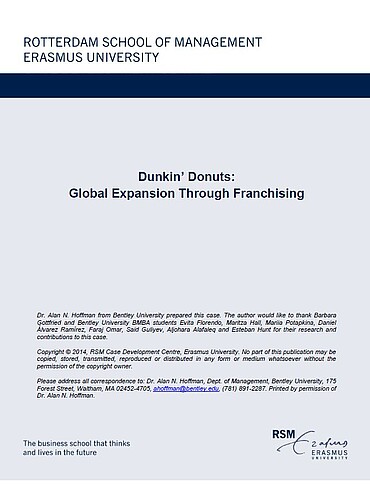Abstract
For more than 60 years, beginning in 1950, Dunkin’ Donuts was one of the world's leading franchisors of quick service restaurants (QSR). Its franchising model fostered consistent growth and allowed it to open more than 10,000 stores in the US and abroad, selling high quality coffee with fast service and low prices. The company had an ambitious goal to open 15,000 new stores by 2020. While Dunkin’ Donuts was able to achieve enormous success, all QSR restaurants were under pressure from the external economic and social environment. The desire for healthy foods was growing but it was not easy to make a donut shop appear “healthy.” In addition, many US states put new laws in place with regard to serving healthy food that presented a challenge to the donut-and-coffee based company. The new Obama healthcare law requiring all employees to have health insurance coverage could also result in higher future labour costs for Dunkin’ Donuts. These challenges could hamper Dunkin’ Donuts’ ability to meet its goal.
Citation Note
Based on published sources; 11 pages.
Follow the 'handle' link to access the Case Study on RePub.
For EUR staff members: the Teaching Note is available on request, you can contact us at rsm.nl/cdc/contact/
For external users: follow the link to purchase the Case Study and the Teaching Note.
